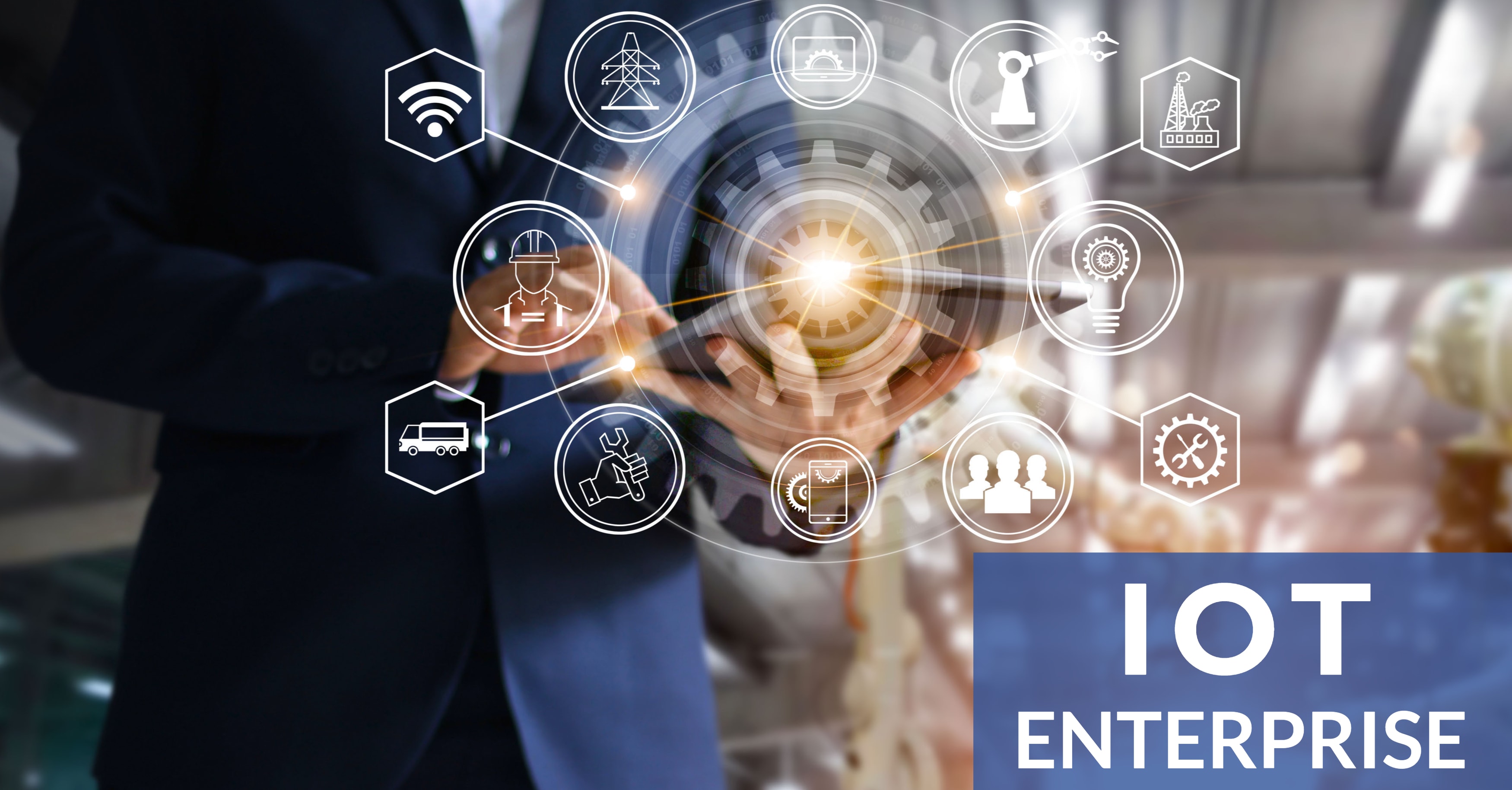
The IoT, Explained
Quite simply, the Internet of Things (IoT) is an umbrella term for every device connected to the internet. From the obvious smart phone or tablet device to a home security system that you can monitor over the internet, any device with a computer processor that functions as an isolated, singular web server is technically part of the IoT network.
Though IoT seems like a relatively new trend, many manufacturers already include objects on the shop floor that are part of the global network of “things,” such as temperature sensors on production machines. But businesses are pushing IoT even further to form an intricately connected enterprise. Connecting their IoT devices to their existing enterprise applications and ERP software is helping future-ready manufacturers transform their big data into actionable insights.
How exactly is the Internet of Things driving advancements in manufacturing? Below, we go over some of the greatest incentives of developing an IoT enterprise.
Identify Issues Before They Happen
IoT functionality reduces risk by using sensors to monitor machinery across your locations, so you can proactively respond to issues before experiencing unplanned downtime or a breakdown. With Epicor IoT, your machine metrics are displayed in a user-friendly dashboard that instantly shares the status of your equipment. If your solution detects any glitches or disruptions, you can instantly create a DMR or rework order to attack the problem.
This valuable information enables technicians to immediately locate issues and perform maintenance before any interruptions occur on your shop floor. With real-time insights into your equipment, you can keep your production lines running and protect your organization from costly downtime and errors.
Optimize Supply Chain Performance
IoT’s impact on your supply chain extends beyond preemptive maintenance. Together, ERP and IoT provide unmatched visibility into the supply chain. By helping you keep a closer eye on your performance, the Internet of Things can promote lean, streamlined operations.
For example, sensors can automate WIP inspection, identifying defects and transmitting the data back to your ERP. Sensors can also locate waste and bottlenecks to help you increase uptime and reduce costs. Additionally, IoT can provide real-time updates of inventory located across your locations. Your ERP automatically collects data generated from IoT devices to maximize supply chain visibility and optimize productivity.
Improve Decision Making
When it comes to the IoT enterprise, there is no such thing as too much data. With every bit of knowledge, you gain a clearer picture of how your business is running. However, this big data must be processed and analyzed using ERP or BI technology to generate the information you need to make the right decisions to solve problems.
ERP and IoT provides automatic insights at your fingertips—without manual data entry or mining through immense datasets. The big data from your machines and products is analyzed and delivered to your ERP dashboards and reports, giving you a real-time view of your business performance. Wield these insights to understand how your processes work and how they can work better. The IoT fuels faster decision making to help you develop strategies rooted in precise, comprehensive data.
Increase Customer Satisfaction
The power of the Internet of Things isn’t limited to your shop floor. Sensors can be embedded in products to improve customer service and generate new silos of revenue. Data generated from products and synced to your ERP software serves as a window into your customers’ needs.
For example, when your sensor detects a product deficiency or malfunction, field service workers or customer service representatives can reach out to customers and schedule maintenance before customers experience any noticeable issues. Based on information collected from products, you can also capitalize on cross-sell and upsell opportunities, checking in with customers to see if they could potentially benefit from relevant goods or services. With this insight, you can personalize customer service to prolong relationships.
Wrap Up
In short, an interconnected IoT structure can totally change both the way businesses operate internally and how they understand and interact with customers. From RFID devices to sophisticated data management, IoT technology can help enterprises transform the way they collect, store and understand crucial information about their business and their customers. Because more and more data can be collected and processed, all your operations can be more transparent. In the end, both clients and employees will be happy.
The newest version of Epicor ERP includes new IoT functionality to maximize insights. Once an IoT device is set up in the Microsoft Azure IoT Hub, users can view machine statuses and metrics all from one screen. An Epicor Gold Partner, Datix can help you upgrade or implement your Epicor solution to take advantage of this latest capability. Our certified ERP consultants are committed to working with manufacturers and distributors from start to finish to make the most of their enterprise software.
Start transforming your business through software. Learn how to become an IoT enterprise by contacting our ERP experts today!
{{cta(‘770c1544-d87d-4acb-9fc4-7a25e1385094′,’justifycenter’)}}

